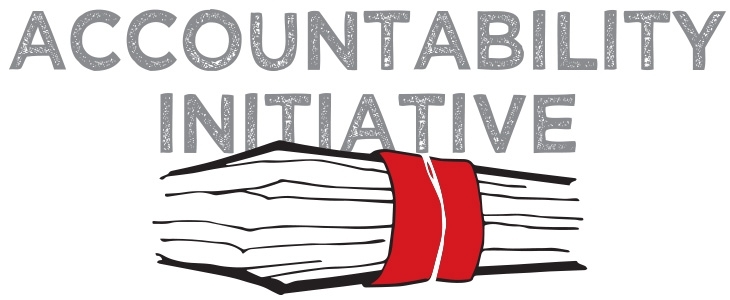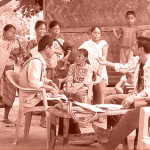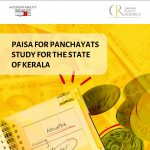
Social Audits: Field Notes from Warangal
24 November 2009
Earlier this month, a group of eight students from Princeton University travelled with our professor, Dr. Jeffrey Hammer, from Princeton, New Jersey, USA to Duddungi block in the Warangal district of Andhra Pradesh, India.
The purpose of our trip was to learn about the social audit process that has been instituted in AP to monitor the implementation of NREGA, the national employment guarantee act. According to the 2005 act, each rural Indian household should be provided with 100 days manual labour per year. A unique feature of the act is that work should be provided on demand. There are other salient features of the act as well, which distinguish it from previous government employment programs. NREGA workers are supposed to be paid the state minimum wage, in cash, within 15 days of completion of a job. The national NREGA guidelines stipulate that social audit audits should be used to monitor NREGA implementation. As yet, however, only AP has done social auditing on a wide scale.
The culmination of the social audit process is the social audit forum, an occasion for the social audit team and for villagers who choose to attend to share the findings of the social audit.
Before travelling to Warangal, a rural district about 5 hours east of Hyderabad, we met with Ms. Sowmya, one of the main coordinators of AP’s social audits. Ms. Sowmya, an activist originally based in Rajasthan with the NGO MKSS, told us about the social audit team and the social audit process. She described a process whereby literate young men (and sometimes women) are recruited from families who have worked on NREGA projects and trained to scrutinize muster rolls and other documents pertaining to NREGA work. These “village social auditors” then worksites and workers’ homes crosschecking the documents, which are obtained using India’s new Right to Information Act. The auditors make notes about discrepancies in payments and measurements, and inform workers about their rights under the act.
The culmination of the social audit process is the social audit forum, an occasion for the social audit team and for villagers who choose to attend to share the findings of the social audit. We Princeton students had the fortunate opportunity to attend a social audit forum while we were in Duddungi. The forum was held outside the block development office. Preparations for the social audit forum began in the morning, with the raising of a large tent, and the assembly of tables and chairs for the attendees. People arrived throughout the morning, and the program got underway around 11am. The employees of the BDO, the district level program officer, members from many levels of the social team, field assistants and technical assistants, villagers, and curious neighbors attended the forum. There was even a police presence; we were told that the last social audit forum in Duddungi had been tense, so this time, extra precautions were taken.
Complaints involved issues of worksite mismeasurement, overreporting of the number of workers, and discrepancies between days worked and wages paid.
To begin, a member of the social audit team sang a song about the NREGA. After that, different district level resource persons read out complaints from the notes they had prepared about the social audit. The district level program officer moderated the discussion and the block level program assistant took notes. The complaints involved issues of worksite mismeasurement, overreporting of the number of workers, and discrepancies between days worked and wages paid. Some villagers waited several hours for their complaints to be discussed. One woman said that she was waiting to talk to the officials about compensation for an injury that her husband had sustained on an NREGA worksite.
By 5 o’clock, it was beginning to get dark, but the forum was still in full swing. We decided that it was time for us to head back to Hyderabad. As we piled in the cars, we were left with several questions: How will the issues raised at the forum be dealt with? What will happen to the people who spoke out at the forum? Will the implementation of the NREGA be affected by this process? We hope that our analysis of a dataset collected by the Accountability Initiative in 2007 and 2008 about social audits and the NREGA in Andhra Pradesh will help shed light on the answers some of our questions.
We are grateful to the Accountability Initiative and to the Ministry of Rural Development in Andhra Pradesh for arranging this unique opportunity for us to learn more about government accountability and to see a social audit forum in person.
Diane is a student at Woodrow Wilson School, Princeton University





